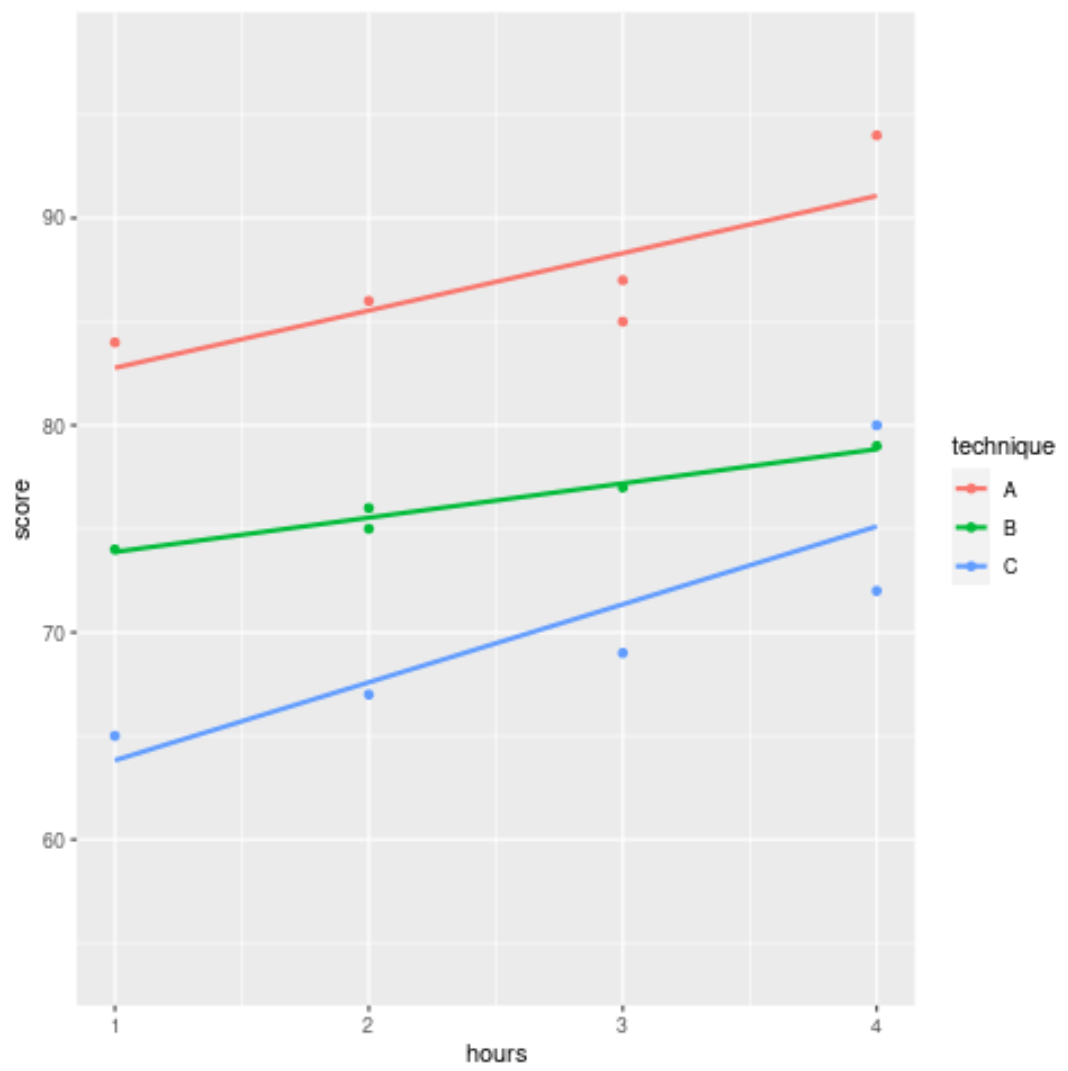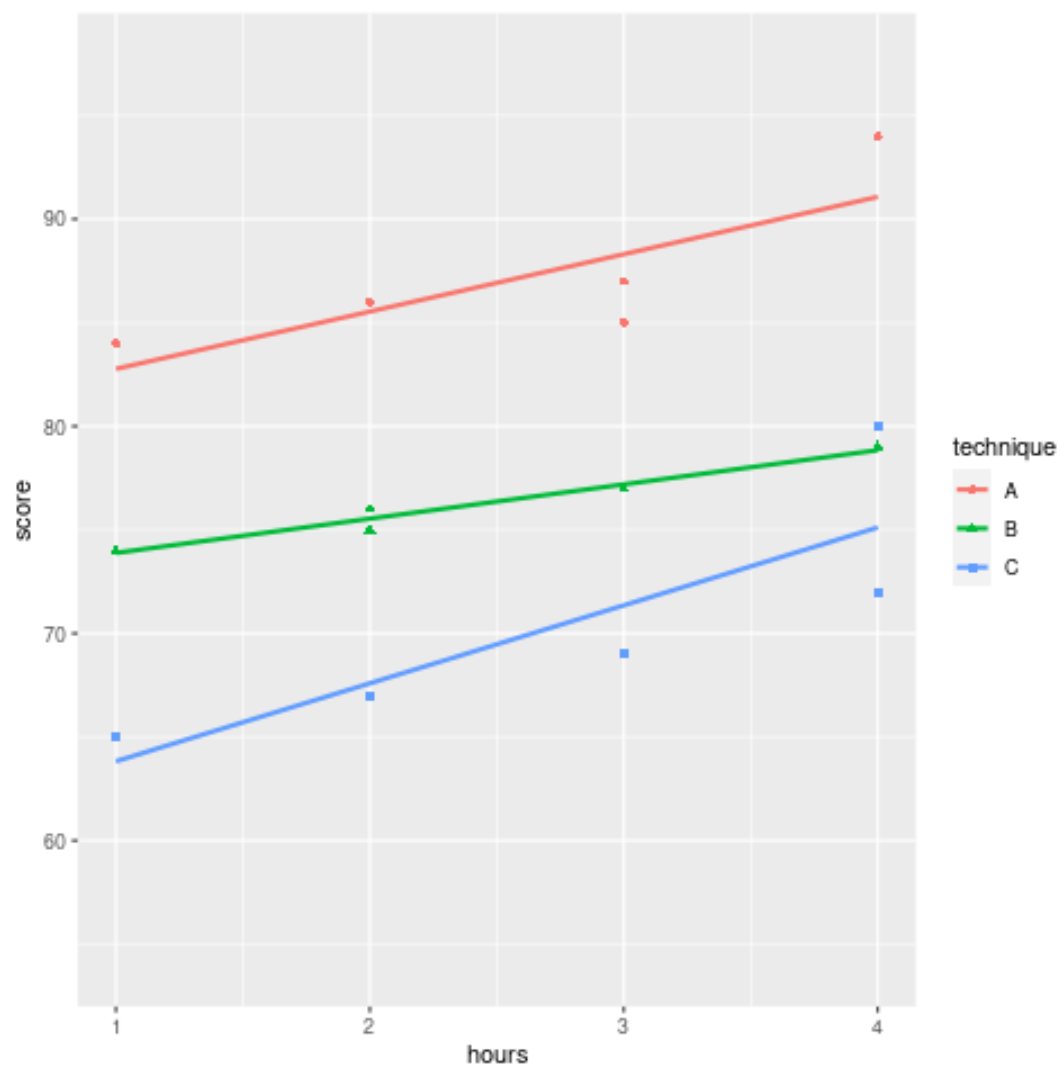We can use the following syntax to plot a regression line by group using the R visualization package ggplot2:
ggplot(df, aes(x = x_variable, y = y_variable, color = group_variable)) + geom_point() + geom_smooth(method = "lm", fill = NA)
This tutorial provides a quick example of how to use this function in practice.
Example: Plot Regression Lines by Group with ggplot2
Suppose we have the following dataset that shows the following three variables for 15 different students:
- Number of hours studied
- Exam score received
- Study technique used (either A, B, or C)
#create dataset df rep(c('A', 'B', 'C'), each=5)) #view dataset df hours score technique 1 1 84 A 2 2 86 A 3 3 85 A 4 3 87 A 5 4 94 A 6 1 74 B 7 2 76 B 8 2 75 B 9 3 77 B 10 4 79 B 11 1 65 C 12 2 67 C 13 3 69 C 14 4 72 C 15 4 80 C
The following code shows how to plot a regression line that captures the relationship between hours studied and exam score received for each of the three study techniques:
#load ggplot2 library(ggplot2) #create regression lines for all three groups ggplot(df, aes(x = hours, y = score, color = technique)) + geom_point() + geom_smooth(method = "lm", fill = NA)
Note that in geom_smooth() we used method = ‘lm” to specify a linear trend.
We could also use other smoothing methods like “glm”, “loess”, or “gam” to capture nonlinear trends in the data. You can find the full documentation for geom_smooth() here.
Note that we could also use different shapes to display the exam scores for each of the three groups:
ggplot(df, aes(x = hours, y = score, color = technique, shape = technique)) +
geom_point() +
geom_smooth(method = "lm", fill = NA)
You can find more ggplot2 tutorials here.




